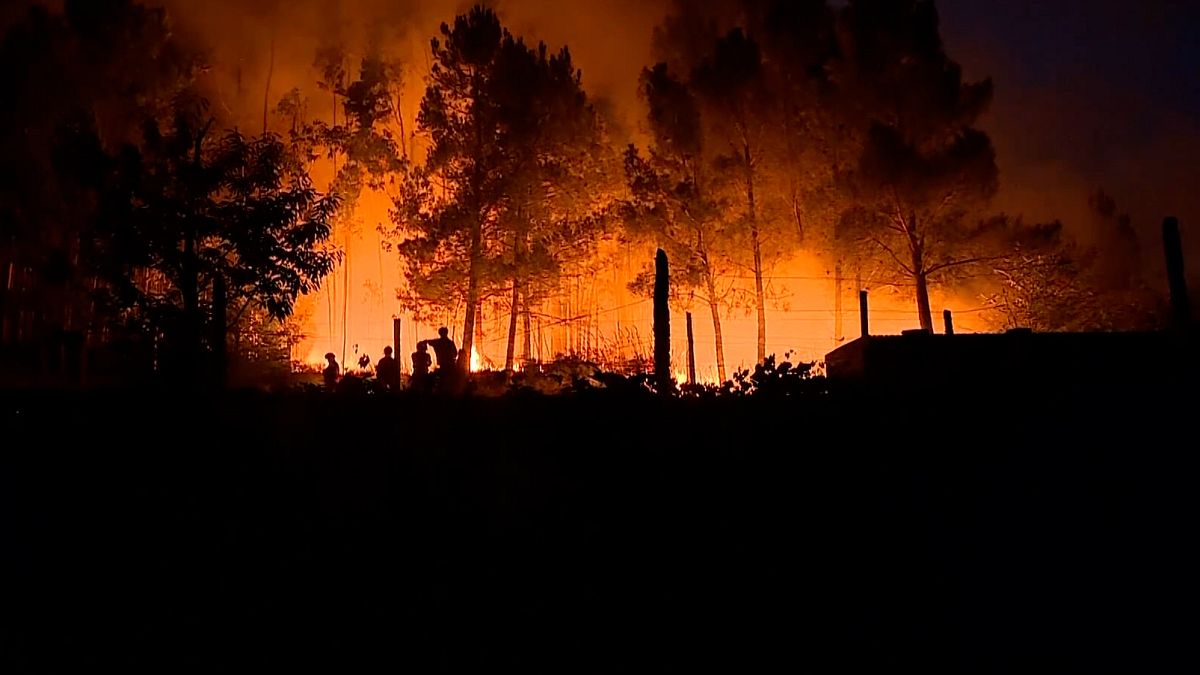

As the summer sun continues to blaze, both Spain and Portugal are grappling with intense wildfires that have swept across their landscapes, fueled by soaring temperatures and strong winds. The regions are experiencing a particularly challenging season, with numerous fires blazing across northern and central areas.
In Portugal, the situation has escalated considerably from the previous year. By mid-July, the country had already faced over 3,000 fires, resulting in the burning of 10,768 hectares, a significant increase compared to the same timeframe last year. These numbers do not even account for the most recent outbreaks, highlighting the severity of the summer’s conditions. Firefighting teams continue to remain vigilant as they battle the blazes that threaten both life and property.
Simultaneously, in Spain, similar conditions have prompted the outbreak of several major fires. Thousands of hectares have already fallen victim to the flames, prompting the evacuation of hundreds of residents for their safety. The fire in A Cañiza, Pontevedra, particularly stands out, with over 200 hectares consumed. This has led to a State 2 emergency being declared, necessitating evacuations and lockdowns in several villages as efforts continue to contain this wildfire.
The challenges faced by firefighters in both countries are further compounded by the persistent high temperatures and variable wind patterns, which complicate efforts to control the spread of the fires. The fierce natural elements test the resilience and resourcefulness of firefighting teams as they navigate these daunting conditions with determination and strategic planning.
A soothing reminder amidst the chaos, however, is the sense of community and solidarity that often emerges during such crises. Neighbors have come together to support one another, creating networks of safety and assistance, exemplifying the human capacity for compassion in the face of adversity.
Looking beyond the immediate tactical responses, these incidents also ignite broader discussions around the influence of climate change and how societies might better prepare for such occurrences in the future. The increased frequency and intensity of wildfires are often linked to changing climate conditions, prompting introspection about sustainability and environmental stewardship.
In this broader context, it is notable that a recent report sheds light on the intricate dynamics affecting public perception of climate issues. It points to the roles played by various political figures, fossil fuel companies, and even foreign state interests in shaping climate denial and misinformation worldwide. As awareness grows, there is a collective call to action for addressing the misinformation and fostering informed discussions on sustainable practices and policies.
In conclusion, while the wildfires in Spain and Portugal present immediate challenges, they also offer an opportunity to reflect on broader environmental themes and the important work that lies ahead. Staying mindful and informed as we navigate these environmental challenges, we can foster a future that respects and harnesses the power of nature rather than struggling against it. Together, communities and nations hold the collective power to shape a more resilient and sustainable path forward.
Source: {link}
